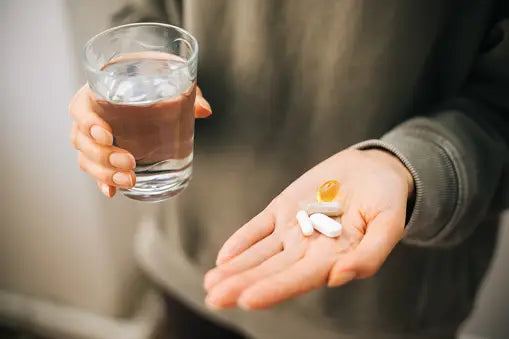

Intra-Workout BCAA's for Maximal Performance
Table of Contents
| Most athletes consume their BCAA’s shakes after exercise, but the new research suggests that it may be wise to drink a BCAA’s and carbohydrate beverage during exercise for maximal gains. |
If your training hard, it’s important that you refuel your body with the right nutrients. There is a thin line between training hard and overtraining, but taking the right supplements can help you stay anabolic. A single session of resistance exercise has been suggested to stimulate muscle protein synthesis for up to 48 hours, however, in the absence of nutrient intake, net protein balance remains negative. Some health advocates still believe that carbs are “bad” and lead to weight gain. Studies on the impact of carbohydrate and BCAA ingestion on muscle protein synthesis have focused on nutrient intake during acute postexercise recovery. Carbohydrate ingestion during postexercise recovery attenuates the exercise-induced increase in muscle protein breakdown but does not affect muscle protein synthesis. To get the maximal increases in muscle protein synthesis rate, It has been suggested that the ingestion of carbohydrate and BCAA’s before and after exercise inhibits protein breakdown and stimulates muscle protein synthesis, resulting in net muscle protein synthesis during recovery. Most athletes consume their BCAA’s shakes after exercise, but the new research suggests that it may be wise to drink a BCAA’s and carbohydrate beverage during exercise for maximal gains.The interesting finding of the study was that the athletes who trained during the evening in which most people train had a greater post-exercise protein synthesis level that night.
Researchers investigated the effect of carbohydrate and protein ingestion on whole-body and muscle protein synthesis during a combined endurance and resistance exercise session and subsequent overnight recovery. Twenty healthy men were studied in the evening after consuming a standardized diet throughout the day. Subjects participated in a 2-hour exercise session during which beverages containing both carbohydrate (0.15 grams per kg per hour) and protein (0.15 grams per kg per hour) (C+P, n = 10) or water only were ingested.
Participants consumed two additional beverages during early recovery and remained overnight at the hospital. At the end of the study, The data show that, even in the fed state, supplementation with carbohydrate and a protein elevates muscle protein synthesis during exercise, but interestingly the researchers found that the ingestion of protein and carbohydrates does not further augment muscle protein synthesis over the subsequent overnight recovery period. The study shows that intake of carbohydrate and protein during a combined endurance and resistance exercise session stimulates both whole-body and skeletal muscle protein synthesis rates during exercise conditions.
The present study indicates that it might be preferable to ingest carbohydrate and protein already during resistance exercise to augment further the skeletal muscle adaptive response to exercise training.
Beelen M, Tieland M, Gijsen AP, et al. Coingestion of carbohydrate and protein hydrolysate stimulates muscle protein synthesis during exercise in young men, with no further increase during subsequent overnight recovery. J Nutr 2008;138:2198-204.
Roy BD, Tarnopolsky MA, MacDougall JD, Fowles J, Yarasheski KE. Effect of glucose supplement timing on protein metabolism after resistance training. J Appl Physiol. 1997;82:1882–8.
Miller SL, Tipton KD, Chinkes DL, Wolf SE, Wolfe RR. Independent and combined effects of amino acids and glucose after resistance exercise. Med Sci Sports Exerc. 2003;35:449–55.
CrossRefMedline
Borsheim E, Cree MG, Tipton KD, Elliott TA, Aarsland A, Wolfe RR. Effect of carbohydrate intake on net muscle protein synthesis during recovery from resistance exercise. J Appl Physiol. 2004;96:674–8
Borsheim E, Aarsland A, Wolfe RR. Effect of an amino acid, protein, and carbohydrate mixture on net muscle protein balance after resistance exercise. Int J Sport Nutr Exerc Metab 2004;14:255-71.
Koopman R, Wagenmakers AJ, Manders RJ, et al. Combined ingestion of protein and free leucine with carbohydrate increases postexercise muscle protein synthesis in vivo in male subjects. Am J Physiol Endocrinol Metab 2005;288:E645-53.

















